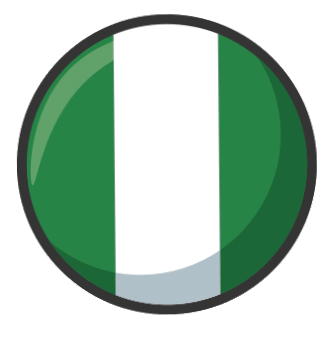
Fellow Nigerians, for generations, we have carried a collective ache. It is the pain of potential deferred, of dreams stalled, and of a nation that always seems to be on the cusp of greatness, yet perpetually stumbling. In our moments of frustration, the question that echoes loudest across our markets, our universities, and our social media spaces is: “When will Nigeria finally deliver on its promise to me?”
We look to Abuja, we look to our state capitals, and we wait. We wait for the infrastructure, for the security, for the jobs, for the perfect system that will somehow, magically, solve all our woes. This posture of waiting, of demanding, has become a defining characteristic of our citizenship.
But today, I invite us to borrow a light from history, a timeless challenge posed decades ago, and apply its profound truth to our Nigerian reality. Let us be jolted by the powerful mandate:
“Ask not what your country can do for you — ask what you can do for your country.”
— John F. Kennedy
This is not an American creed; it is a universal law of nation-building. And for Nigeria, a young, vibrant, and challenging democracy, it is the only way forward.
From Consumer to Creator
Our greatest stagnation comes from viewing Nigeria as a retail product. We see ourselves as customers who have paid their tax-dues and are now entitled to a flawlessly functional service provider (the government). When the service fails—when the roads are poor, when the lights flicker, when the institutions are weak—we resort to frustration, criticism, and often, emigration.
But a nation is not an entity separate from its people; it is the sum total of our collective efforts and individual character. Nigeria will only be as great as the smallest, most ethical decision made by the most ordinary Nigerian today.
The True Meaning of Service
What does it truly mean to ask what you can do for Nigeria, especially when the challenges seem insurmountable? It means moving beyond the grand, heroic gesture and embracing the dignity of the small, consistent act of integrity.
- If you are a student: It means rejecting the temptation of sorting and refusing to participate in examination malpractice, thereby fighting the corruption that begins in the classroom. You are strengthening Nigeria’s future intellect.
- If you are a professional: It means refusing to cut corners, delivering your work with excellence, and fighting the culture of ‘African Time’ with punctuality and rigour. You are building Nigeria’s professional integrity.
- If you are a neighbour: It means organising a community clean-up without waiting for the local council, mentoring a youth who lacks direction, or simply speaking up against the small, everyday injustice on your street. You are nurturing Nigeria’s civil society.
- If you are a commuter: It means refusing to bribe a traffic officer, choosing to wait your turn in a queue, and respecting public spaces. You are enforcing Nigeria’s adherence to law and order.
These are not trivial acts. They are the micro-revolutions of character that accumulate into a functioning, moral society. Every time you reject a compromise, you are not just helping yourself; you are injecting a small dose of antidote into the national malaise of cynicism.
Building Our Own Light
We spend too much energy lamenting the darkness. The time has come for us to stop waiting for the leaders to switch on the light and instead, become the individual sparks that collectively illuminate the nation.
Imagine the sheer force of change if every Nigerian stopped relying on the system and started becoming the system—a system of personal responsibility, of integrity, of relentless hard work, and of communal care.
Nigeria’s most valuable resource is not oil, but the Nigerian spirit—our resilience, our innovation, our humour, and our boundless capacity for enterprise. Let us channel this energy away from complaint and into contribution.
The call of the hour is a call to ownership. Nigeria is ours to build, to clean, to mend, and to protect. Let us stop pointing fingers at the distant government and start using our hands to fix the problems right in front of us.
My fellow citizens, the time for waiting is over. The time for the Nigerian Renaissance, powered by the hands and the ethical choices of its own people, is now. Ask not what your country can do for you. Ask, and then demonstrate, what you can do for Nigeria today.







Add Comment